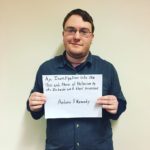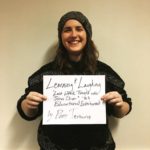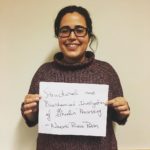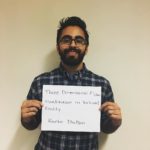Seek Funding Support
Now is the time to seek funding support if you have not already.
Any Honors student may obtain up to $200 from Honors to defray appropriate project costs. This can include publication costs, mileage reimbursement, and minor travel expenses, or equipment rental costs. You submit a brief description via email, of how much money is needed and for what, to your Thesis Coordinator. Once the request is approved, you submit receipts for expenditures to Laura McCall in Honors (the University will not reimburse without receipts!) and we process your reimbursement. The process takes a few weeks to complete.
If you need more than the initial amount to implement your project
- Honors supports a select number of Thesis projects with Crown Awards and Wise-Marcus 50-Year Friendship Awards. Each year we fund approximately 25 projects with up to $5,000 per project.
- Additionally, a distinguished Honors alum, Dr. Lynne Parker, has sponsored the Parker Award for Women in Science, which funds a female student's Thesis project in a science field each year.
- Funding can make additional research opportunities, materials, or travel available to you, helping you produce an even more impressive final project. Additionally, it's a valuable professional experience: learning to create a budget and argue on behalf of your project prepares you for future grant writing and application processes.
- The new SOURCE in the Syracuse University Office of Undergraduate Research offers summer research grants of up to $2800 and academic year grants of up to $5000 for research expenses including supplies, materials, travel, participant compensation. Summer funding may be used for living expenses. These grant applications are available each October and February. Rolling small grants of up to $1000 are available on an ongoing basis. Application requires a description of your project (including budget and timeline), letter from your faculty mentor, resume and transcript.
- There are many programs and opportunities to support undergraduate research and creative work on campus, including the Honors Program, the McNair Scholars Program, LSAMP, and many others.
Juniors: Apply in February of your Junior year, or once you have your project started. We offer workshops to help you prepare for your application. Keep an eye on our events and deadlines section for more information, but also keep an eye out in your email. We'll let you know when they are going to take place.
Seniors: Some students only discover a need for funds the summer before senior year (maybe you were abroad in spring?), so we have a second round for seniors in the fall. That deadline is in early October.
To learn more about eligibility and how to apply, please visit our funding page.
Find an Honors Reader
Your advisor can help you select your Honors Reader, who is usually in the your major or a thematically related field. Your Honors Reader, although not as deeply involved in your thesis as your advisor, plays three important roles:
- The Honors Reader reviews an early draft/iteration of the project and gives the student useful comments on its strengths and on any weaknesses that need to be addressed, and communicates these to the advisor as well. The student works with the advisor to incorporate these suggestions into future drafts.
- The second role is to review the first draft of the Executive Summary, which is aimed at a general (not expert), educated audience. Because the Reader is less directly involved than the advisor, the Reader is well-positioned to judge whether the summary is effective.
- The third role for the Honors Reader comes in April of your senior year, after you and your advisor have reviewed many drafts of the project, and your advisor is satisfied with the entire work and ready to give final approval to the project and the written components. Your reader will approve and sign off on your final thesis by signing the title page.

Although Butters cannot directly help you select your Honors reader, he is always available for emotional support and a high five when you let your Thesis coordinator know who you've chosen to fulfill the role.
Register for 499 Independent Study Course
How the 499 Registration Process Works
You will devote considerable time and energy to your project, and the thesis course (499) is how you get academic credit and provides your faculty advisor with a mechanism for grading your work. It's also a requirement. Everyone must register for one to three credits of a thesis course, and receive a B or higher in order to fulfill the thesis requirement.
Visit our 'Forms' Section to fill out your 499 form.
- If you’re in a senior thesis/distinction program, you won’t register for 499. You’ll register for the thesis/distinction course in your major. You’ll do that on MySlice during registration.
- take a look at our list of distinction courses in your department if you have a question about which one to register for.
- We will find it on your transcript and apply it to your Honors thesis requirement.
Submit a Chapter
Sometimes the hardest part of working on the written portion of your thesis is just getting started. During the fall of your senior year (see the timeline for an exact due date), you'll send just a single draft chapter to your Honors thesis coordinator.
Critical Statement for Creative Projects
The critical statement is a required component for creative projects. This essay discusses your aesthetic choices, your background research, and how you situate the project within the artistic traditions you are engaging. If you need additional help with any written portion of your thesis, please see the Honors Writing Consultant.
Definition
The critical statement is designed to engage you in reflecting deeply on your work and representing these insights to a reader. Some artists and designers adopt a “tacit” approach to the act of making. They believe that the work should speak for itself, and that to speak of the act of creation is to demystify or denigrate it. However, as an Honors student, you are expected to be able to write articulately to the university community and beyond about the artistic and cultural context of your work and its meaning.
Content
Here are three key aspects of your work to discuss:
- No artist’s work arrives out of thin air. Whose work has influenced yours? What taught you to be able to do what you have done? How has your work emerged from what you know about your field or the work of others? What is your relationship to them? Who else is engaging in similar questions at this time and how does your work relate to theirs?
- Reflect on the artistic choices you made in the process of creating your project. Was there a conscious theory at work behind your decisions? A moment of serendipity? Did a situation force a decision? Was there a critical turning point or crisis?
- Reflect on what you see as the meaning of the work. Is there a particular effect or change you hope to stimulate in your audience?
Want to see examples of past creative critical statements? Click on the 'Thesis Links' to download the completed works from the creative category and get a sense for what these can look like.































